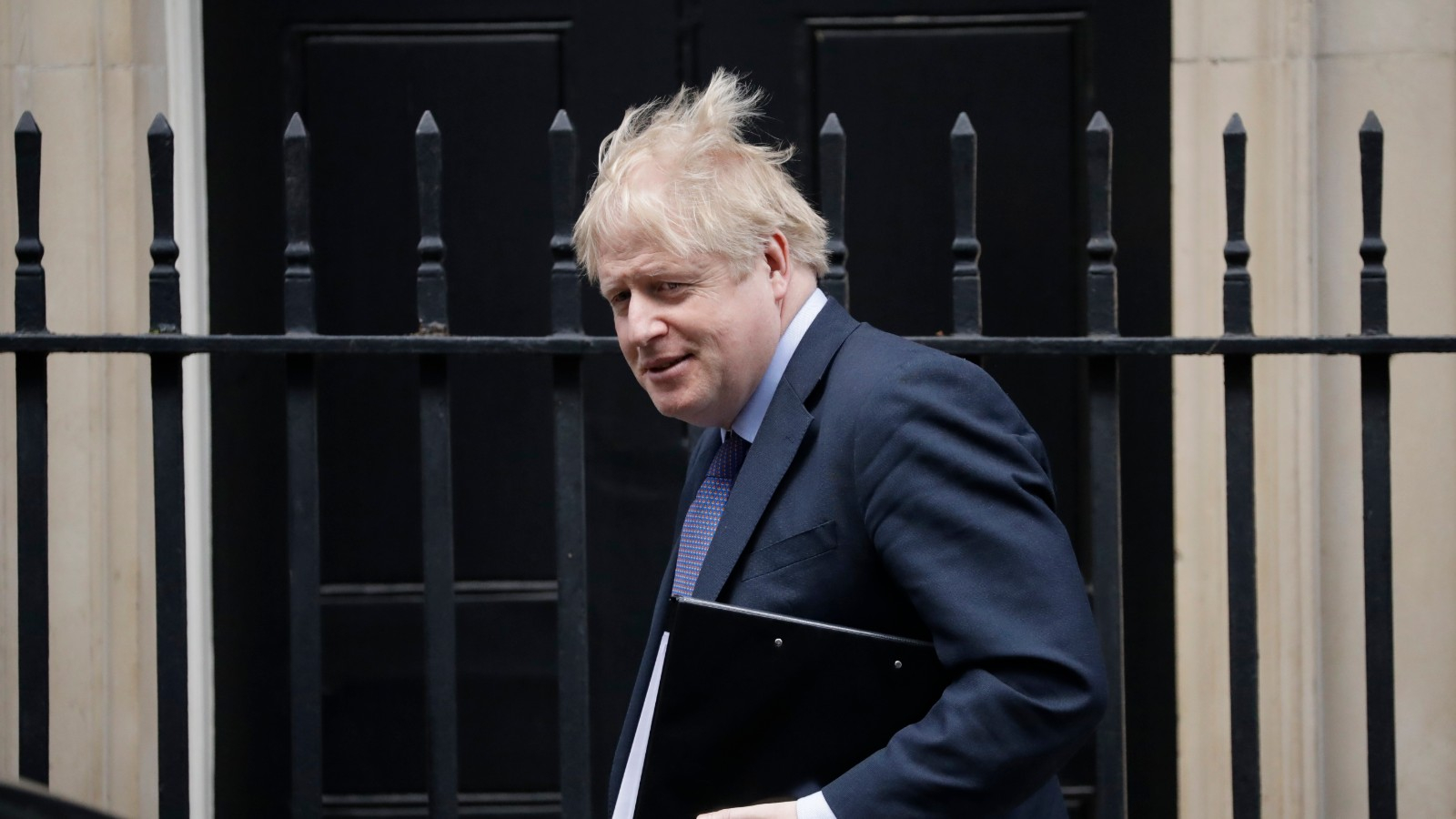01:07

Guto Hari, a former adviser to UK Prime Minister Boris Johnson, told CGTN Europe the resignation of British finance minister Sajid Javid signaled "a massive centralization of power" under his former employer's stewardship.
Hari, who served as communications director under Johnson while he was the mayor of London from 2008-12, added the prime minister was starting to run the government as if the UK were "a presidential system."
"The brutal truth is the prime minister is quite pleased this evening that he has a new chancellor of the exchequer. He has a man who is completely aligned with him on what he wants to do with Britain."

The new Chancellor of the Exchequer Rishi Sunak is seen as a solid loyalist and is likely to embrace UK Prime Minister Boris Johnson's plan for a joint Downing Street economic strategy team. (Credit: AP)
The new Chancellor of the Exchequer Rishi Sunak is seen as a solid loyalist and is likely to embrace UK Prime Minister Boris Johnson's plan for a joint Downing Street economic strategy team. (Credit: AP)
But what kind of cabinet has Johnson assembled to tackle the principle tasks of a post-Brexit UK fighting and negotiating for its place in a global world?
The new Chancellor of the Exchequer Rishi Sunak will be central to this. He is young and relatively inexperienced, but has impressed those around him with his abilities after joining the treasury in July of last year.
It's rumored that Boris Johnson's chief adviser, Dominic Cummings, always wanted him for the role, but Javid's position was seen as solid.
His principle attraction to Number 10 is that he is a solid loyalist and is likely to embrace the prime minister's plan for a joint Downing Street economic strategy team.
As a former hedge fund manager, he has a professional background and is comfortable with the world of international finance.

Boris Johnson's chief adviser, Dominic Cummings, allegedly pushed for the new Chancellor of the Exchequer Rishi Sunak to get the role. (Credit: AP)
Boris Johnson's chief adviser, Dominic Cummings, allegedly pushed for the new Chancellor of the Exchequer Rishi Sunak to get the role. (Credit: AP)
The new Secretary of State for Business, Energy and Industrial Strategy Alok Sharma is another key figure. The former international development secretary has now replaced Andrea Leadsom, who many judged unremarkable in the role.
He is a former accountant, who has served on the Treasury Committee. His experience with numbers and the world of aid and international investment will be crucial as the UK seeks trade deals abroad.
It's interesting also that after unsuccessful attempts to woo David Cameron and then William Hague, two senior figures in the party, Sharma will now assume the chair of the UK delegation at the COP 26 climate talks in Glasgow later this year. It's a job that Johnson said he wanted to go to a 'heavy hitter'.
It will involve complex international diplomacy as nation states weigh up economic priorities against the environmental imperative.

Alok Sharma is the new secretary of state for business, energy and industrial strategy. (Credit: AP)
Alok Sharma is the new secretary of state for business, energy and industrial strategy. (Credit: AP)
Downing Street is clearly looking for individuals that are ambitious and prepared to stick their necks out. Theresa Villiers in environment and Andrea Leadsom in business were examples of those that fell short.
To that end, Johnson will be looking in the junior ranks for fresh talent to unite around the Downing Street mission to 'level up' and refresh the UK profile on the world stage.
New blood like Kwasi Kwarteng, now business secretary, Suella Braverman as attorney general, and Anne-Marie Trevelyan into international development - all of whom were Brexiteers - are names to watch down the line.